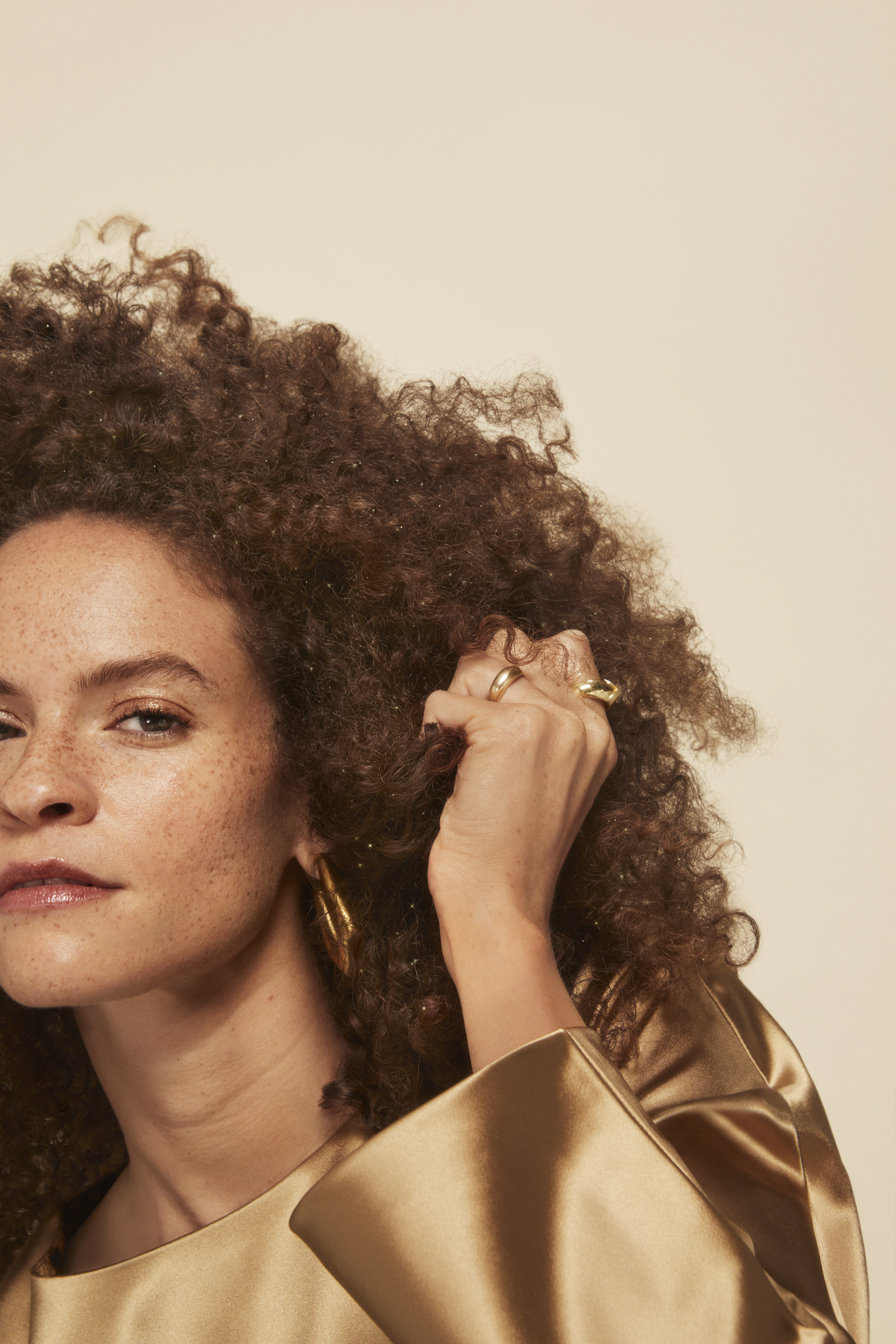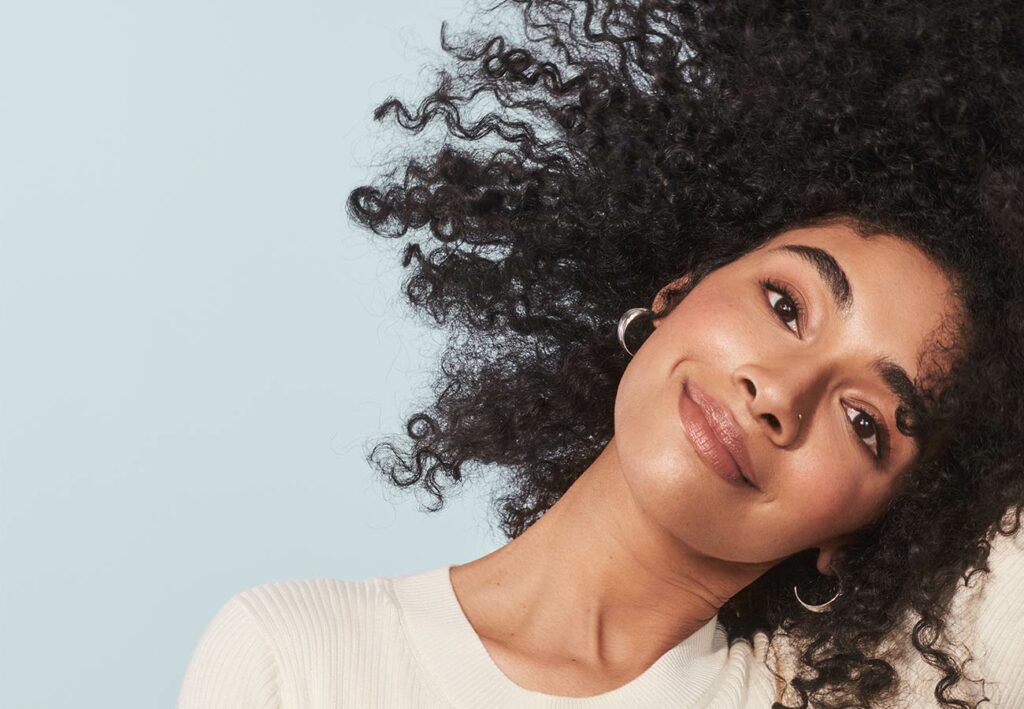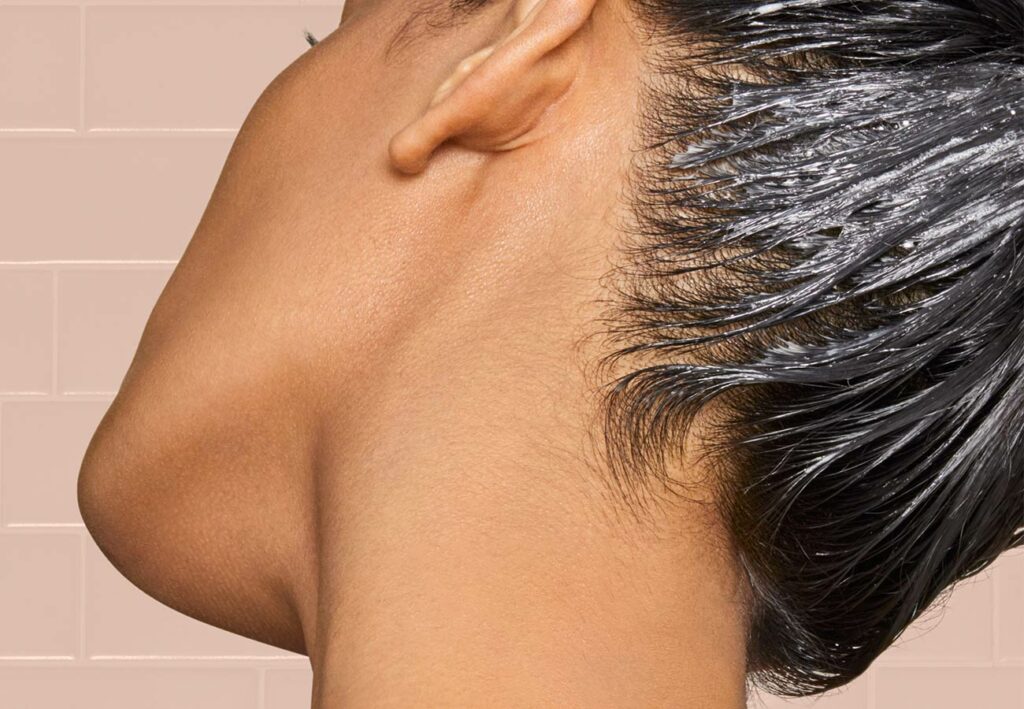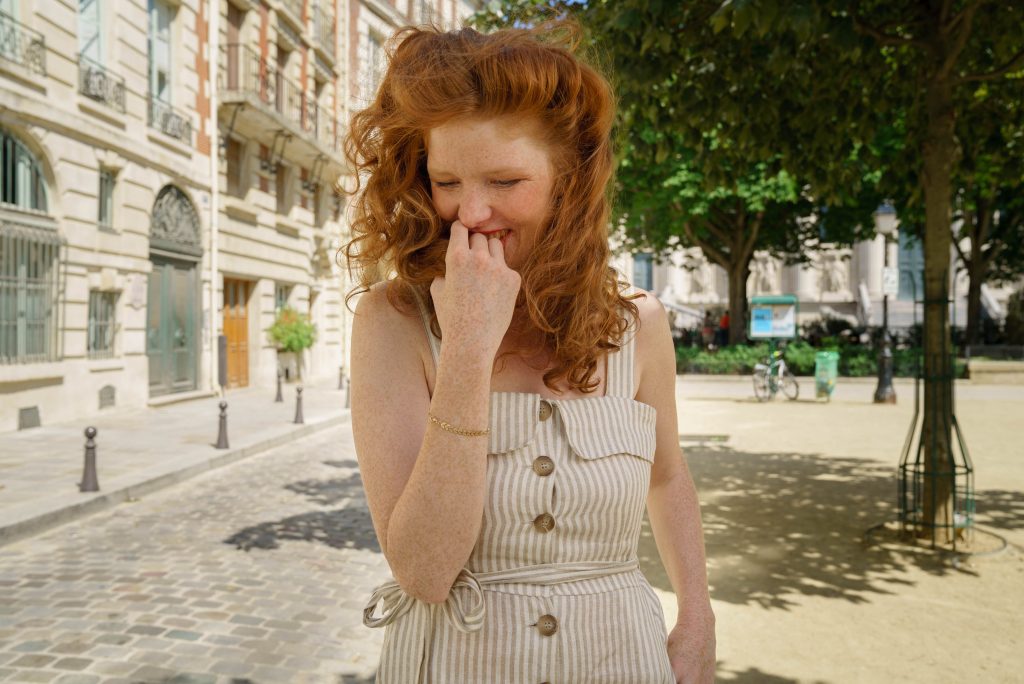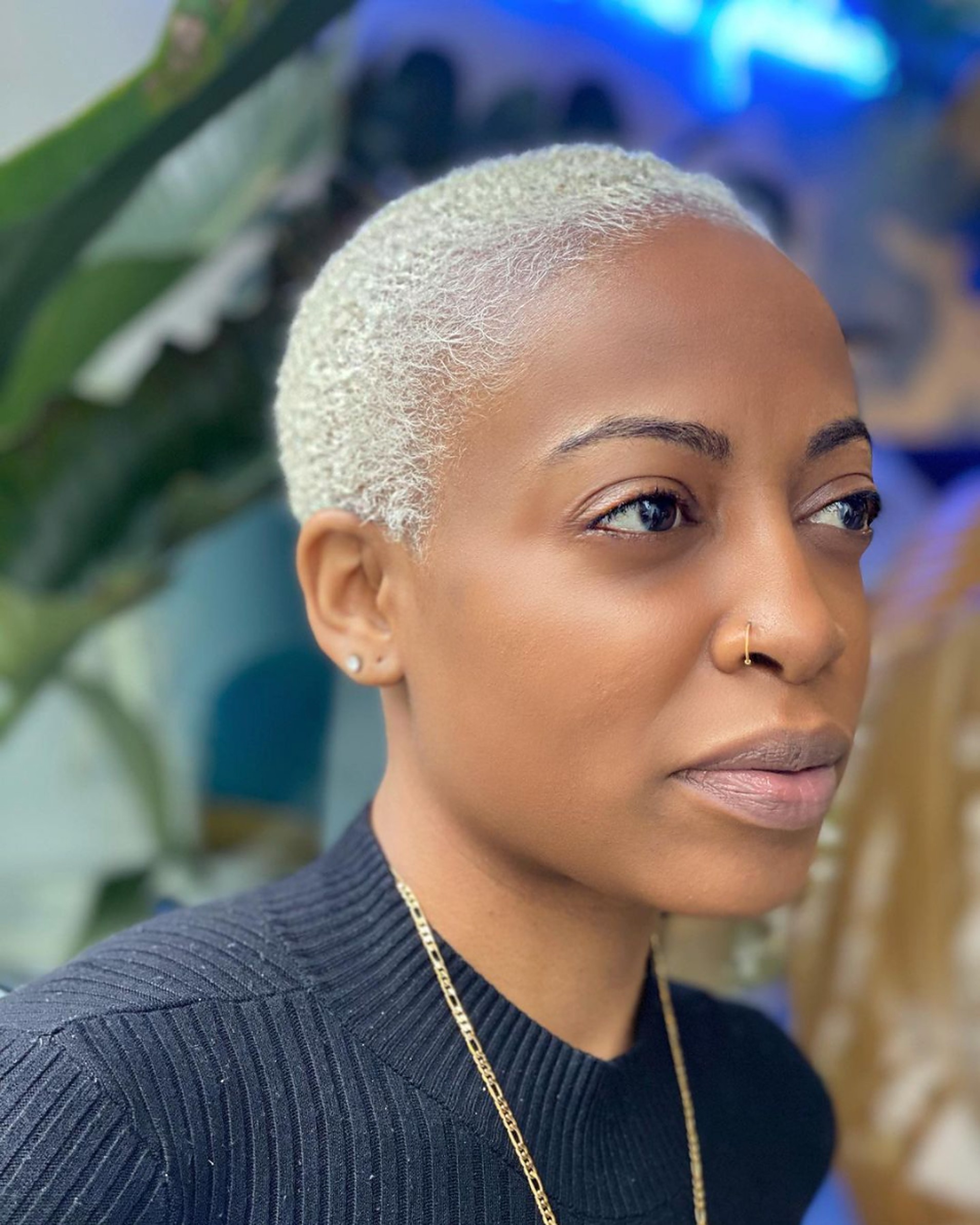The unexpected effects of co-washing
“I’ve been co-washing for at least four years. But I haven’t only been co-washing. I would use a shampoo that lathers once a week and then I would co-wash in between so I thought that I was thoroughly cleansing my scalp,” says photographer and designer, Monica Deldoc. “But the shampoo I was using at the time never really left my scalp feeling clean.” Deldoc paid a visit to the Dr. Scalp clinic in NYC where they examined her scalp under a microscope the day after washing. “He said my scalp didn’t look clean at all. He found lots of buildup and excess oil. And told me that my wash day routine was actually harming my scalp.”
Deldoc immediately changed her routine all together. She started washing her hair with the Prose shampoo at least twice a week and ditched her co-wash. In fact, shampooing with a clarifying shampoo at least twice a week did wonders to her hair. Her curls felt thicker and healthier since making the switch. She’s also incorporated a few other changes that were recommended to her.
“Dr. Scalp told me to stop air drying my hair. He suggested I invest in a diffuser attachment and that if I don’t want to dry my entire head, to at least dry my scalp. The drying of the scalp keeps it from attracting dirt because the longer your scalp is wet, the more likely dirt and oils will stick to your scalp. He says wash day can actually be useless when you air dry,” she says.
Deldoc admits that this new learning completely changed everything she thought she knew about how to properly wash and care for curls. So many of us have become champions of the “no-poo” movement since we first learned about the hydrating benefits of co-washing. In fact, many curl experts suggest curly girls to only co-wash or cleanse their hair with a conditioner rather than with a shampoo that lathers. But Deldoc’s story isn’t unique. Quite a few curly girls have shared on social media platforms how months or years of co-washing eventually lead to scalp issues. Could it be that co-washing alone just isn’t enough?
According to cosmetic chemist and Director of Research at TRI Princeton, Trefor Evans, the answer is no. He believes everyone should consider lathering up at least once a week to prevent scalp buildup, regardless of your hair texture, type, or curl pattern.
“The cleansing conditioners really are just conditioners but you can argue that they give you a little bit of cleansing but it really is just a little bit. This whole thing of the no-poo movement — when did cleanliness stop being good? If you don’t cleanse your hair and your scalp, then all of a sudden there’s all the sebum and product buildup,” Evans says. “Washing your hair regularly is a good thing and that’s not what a cleansing conditioner is. It might give you a smidge of cleansing but it’s not at all close to what you need.”
Switch up your wash day routine
While some experts are completely against co-washing, others believe that as part of a larger routine it might not be so bad. Take curl expert and owner of 5 Salon Spa in New Jersey, Ona Diaz-Santin, also known as The Hair Saint. She suggests that curly girls take a more balanced approach when it comes to cleansing, since the scalp’s oil production does in fact, differ from person to person. While we’ve all been educated about how frequent washing, especially with shampoos that contain harsh sulfates and detergents, can strip hair of its natural oils, there are ways to keep your curls soft and hydrated while also prioritizing your scalp.
“Buildup of products, sebum and not keeping your scalp healthy, can promote many different issues with your hair and scalp. Some can lead to dryness, hair loss and scalp issues,” Diaz says. “Co-washing is a great method to use in conjunction with shampooing. It allows moisture [to remain] in the hair and not over shampoo. However, it does not replace a gentle shampoo.”
It’s all about personalization. Diaz believes that how often one shampoos really depends on their individual hair and scalp needs. There isn’t a one-size-fits-all approach to hair cleansing. How often you co-wash really depends on your hair and how your scalp’s individual oil production.
“The main reason [to shampoo] would be to keep the scalp healthy by removing buildup of any kind. Shampooing is separate and depends on the hair’s porosity and in what condition it is,” she says. “Rule of thumb, if the hair is dry and is lacking moisture — shampoo less. If the hair is prone to being oily, over shampooing will result in more oiliness. Try stretching 2-3 days and use a dry shampoo in between.”
Find the routine that works for your hair type
For Deldoc shampooing at least twice a week with a clarifying shampoo seems to be doing the trick for her. She also makes sure to use a scalp brush in the shower when shampooing to help stimulate blood circulation that promotes hair growth. She doesn’t feel the need to co-wash anymore. She still does her weekly deep conditioner treatments using the Prose pre-shampoo mask from the mid-section down to her ends. She no longer applies conditioner to her roots and has a similar approach with her styling products. She rakes in curl cream from the mid-sections down and then gently scrunches in a light-weight foam mousse. She diffuses her crown area on low or medium-heat until her scalp is mostly dry.
Co-washing, especially if you tend to use oil-heavy hair styling products, could do a poor job of ridding your scalp from oils, dirt, and product buildup. And the buildup is what compromises scalp health and can result in everything from itchiness, dry scalp to hair loss. If you’re committed to co-washing, consider lathering up 1-2 times a week or at least once every other week with a gentle but clarifying shampoo like the Prose Shampoo, and co-wash in between. When conditioning or styling, consider Deldoc’s approach to keeping conditioner and styling products away from the scalp and apply to mid-section and ends only to prevent potential buildup on the scalp. DIY treatments like a diluted apple cider vinegar rinse every other week can also do wonders to gently clarify your scalp. Whatever you decide just remember the trick to healthy hair is a healthy scalp!

